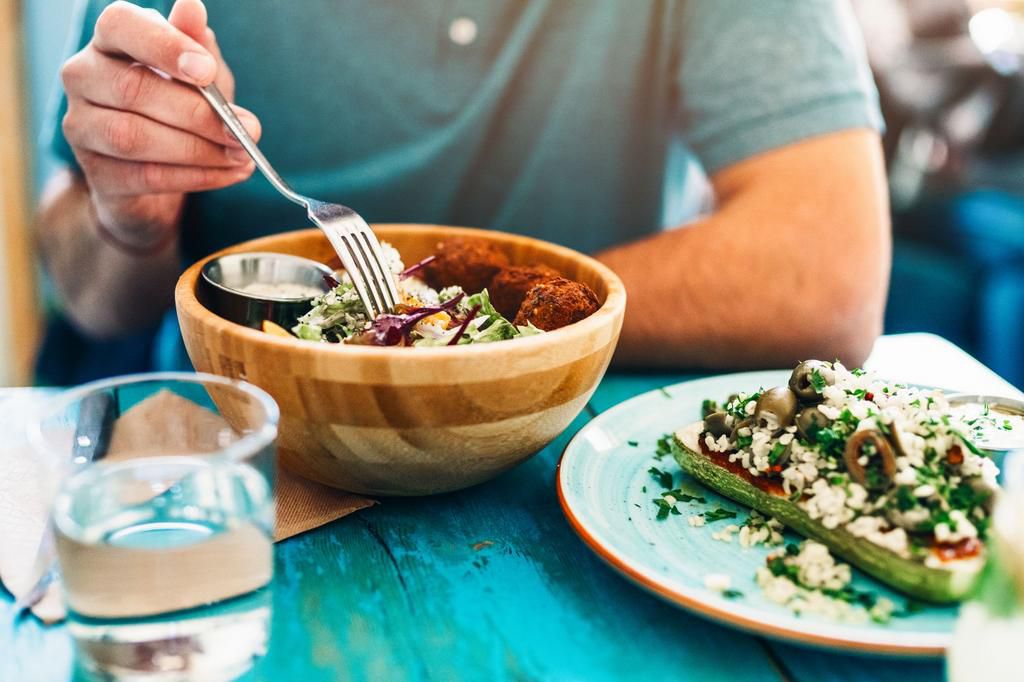7 Ways to Turbocharge Your Intermittent Fasting Eating Window
)
There were no all-night diners or frozen pizzas to tempt them. They had no choice but to ignore that gnawing emptiness in their stomachs until they happened upon a bush of ripe berries or got lucky with a spear .
Intermittent fasting, that is, purposely abstaining from eating for a certain number of hours or days, is much harder for modern humans who have access to food 24/7. (Insomnia Cookies delivers until 3 a.m.) But regular extended breaks from eating can be so beneficial to our welfare (not to mention our waistlines) that its worth the struggle.
To understand just how, it helps to realize what happens in our bodies when we eat like normal Americans do, which is to say, all day and too much of the wrong stuff. We eat a lot of protein and carbohydratesthink meat and potatoes (and chips, cookies, pasta, bread, juice, beer, etc.).
When we digest those macronutrients, our bodies respond by releasing the hormone insulin. Insulins job is to regulate our blood sugar by breaking down the glucose for energy and ushering it into our cells for use.
But if we eat throughout the day and night, our bodies never get a break from the constant release of insulin. Over time, the insulin becomes ineffective at dealing with high blood sugar, so the body pumps out more and more and eventually develops insulin resistance, the precursor to diabetes.
Intermittent eatingreducing our calorie-consuming windowslows the release of insulin and allows the body to seek out fat for energy. Many studies suggest that intermittent fasting may be a healthier way to eat, be a more effective approach for weight loss, and even slightly boost your metabolism, says Carolyn Williams, Ph.D., R.D., in The Mens Health Guide to Intermittent Fasting.

Williams, who was skeptical of IF at first, became a fan shortly after trying the popular 16:8 IF plan, in which you fast for 16 hours (overnight) and consume all calories in only an 8-hour eating window. Williams found that IF kept her blood sugar levels more stable compared to when she ate many times during the day and night. She was surprised to find that IF was pretty painless; she never became ravenous.
How did she do it? Well, what you do eat during that feeding window turns out to be just as important as when you dont eat.
Seven Tricks to Avoiding the Intermittent Fasting "Hangries"
- Avoid foods with fast-burning refined carbs and added sugars when you do eat to avoid kicking your body into an insulin rollercoaster ride. Sugary carbs quickly spike blood sugar, which drops just as fast, making you feel hungry even shortly after you just ate.
- Eat your carbs from vegetables, fruits, grains and beans rich in fiber, which slows the absorption of sugars into the bloodstream.
- Eat a varied diet of nutrient-dense foods like lean proteins, high-fiber carbohydrates like fruits, vegetables and whole grains, and healthy fats. Eating meals that contain all three macronutrients will keep you satisfied and energized throughout your fasting period. The ideal balance is 30% protein, 45% carbohydrates, and 25% healthy fat.
- Consume two large meals and two to three snacks during your eating window. That will provide a steady supply of energy and nutrients to keep you from feeling famished.
- Hydrate. We often misinterpret thirst for hunger. When you wake up, drink a large glass of cool water. Then continue to sip water throughout your fasting period. Water is a great appetite suppressant.
- Add flavor to your zero-calorie beverage can help you get through fasting period. Drink unsweetened hot or iced tea, naturally flavored waters, seltzer or black coffee. If you cant handle black coffee, try adding unsweetened cocoa, cinnamon, or stevia. You can also add up to 40 calories of milk or cream to your coffee without breaking your fast.
- Add a little fat to your morning coffee can help, too. Healthy fats can help you feel full without breaking your fast, says Williams. Try blending 1 to 2 tablespoons of a fat like butter, coconut oil or another a medium-chain triglyceride (MCT) oil in a cup of coffee. Another benefit of coffee on a fast: Caffeine is a stimulant that can boost resting metabolic rate to burn more fat and its also effective at blunting appetite, according to a study in the Journal of the American College of Nutrition.
For more tips and tricks to help work fasting into your life, grab a copy of The Mens Health Guide to Intermittent Fasting .

)
)
)
)
)
)